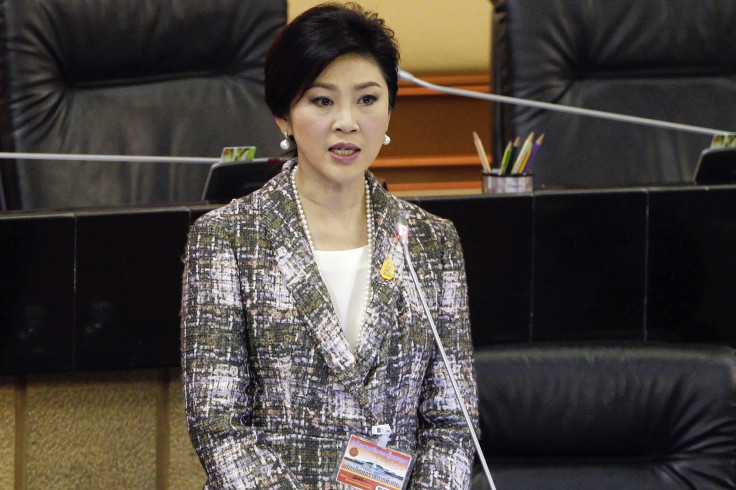Thailand Yingluck Shinawatra Rice Scandal: Former Leader Defends Herself Before Impeachment Vote

Former Thai Prime Minister Yingluck Shinawatra strongly defended herself Thursday and the populist rice subsidy program that got her ousted from the government. Ahead of her impeachment hearing before the parliament on Friday, she rejected claims of corruption and called for impartiality in the vote that could see her barred from politics for five years.
"Banning me for five years would be a violation of my basic rights," Yingluck said at the third and final hearing on her case on Thursday at Thailand's National Legislative Assembly, according to Reuters. Yingluck, Thailand's first woman prime minister, was removed from office for abuse of power in May last year for her involvement in a rice subsidy scheme that bought rice from farmers above market price and helped her win in a 2011 landslide election.
The rice subsidy program was criticized for costing the government 500 billion Thai baht ($15.3 billion) in losses, and is seen as one of Yingluck’s populist measures aimed at buying the rural vote. "It helped those with lower incomes earn more," she said, according to Reuters. "Farmers are the backbone of the country."
Prospects do not look good for Yingluck’s case. The National Institute of Development Administration, a public graduate university in Thailand, conducted a poll and found that 60.48 percent of the 1,250 respondents expected that Yingluck would be impeached, according to the Bangkok Post. The poll showed that only 11.06 percent felt the assembly members would vote against impeachment and 17.04 percent expected they would abstain.
Previous impeachment attempts in Thailand have been unsuccessful. Former Prime Minister Somchai Wongsawat, ex-Foreign Minister Noppadon Pattama and former National Anti-Corruption Commission member Pakdee Pothisiri all faced impeachment charges but were never convicted. Yingluck’s case might be different, as the 220-member NLA comprises 109 military officers and nine police officers picked by the ruling military junta, which calls itself the National Council for Peace and Order. For Yingluck to be impeached requires a three-fifths majority, or 132 yes votes, which seems to be likely given Yingluck’s conflict with the current government, according to The Nation.
The National Institute of Development Administration poll showed that 45.44 percent of the respondents felt that there would be no disorder following the rulings, and 41.2 percent felt that there might be low-level disorder, but nothing that the government wouldn’t be able to control. "The people that want to eradicate her will do everything to prevent Yingluck and (her) Pheu Thai party from entering the next elections," Jatuporn Prompan, leader of the pro-Yingluck United Front of Democracy Against Dictatorship, also known as the Red Shirts, told Reuters.
Right now, Jatuporn has called for calm. "From tomorrow, we will see more clearly. ... If we are not patient, Red Shirts will be accused of being responsible for bad things," he said on Peace TV, according to Channel News Asia. "It is not over on the 23rd, tomorrow is not the end. Time will tell... We have to be patient," Jatuporn urged his supporters.
Yingluck's brother, Thaksin Shinawatra, was prime minister from 2001 until 2006, when he was overthrown by the army as well. He lives in exile and faces corruption charges if he ever returns to Thailand.
© Copyright IBTimes 2024. All rights reserved.






















